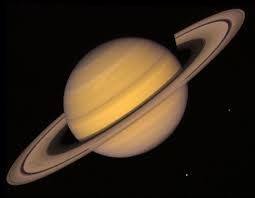中文词源
Saturn 古罗马农神,土星
来自古英语 Saetern,来自拉丁语 Saturnus,农神,可能来自 satus,播种的,过去分词格于 serere,
英语词源
- Saturn
- Old English Sætern, a Roman god, also "most remote planet" (then known), from Latin Saturnus, originally a name of an Italic god of agriculture, possibly from Etruscan. Derivation from Latin serere (past participle satus) "to sow" is said to be folk-etymology.
An ancient Italic deity, popularly believed to have appeared in Italy in the reign of Janus, and to have instructed the people in agriculture, gardening, etc., thus elevating them from barbarism to social order and civilization. His reign was sung by the poets as "the golden age." [Century Dictionary]
Identified with Greek Kronos, father of Zeus. Also the alchemical name for lead (late 14c.). In Akkadian, the planet was kaiamanu, literally "constant, enduring," hence Hebrew kiyyun, Arabic and Persian kaiwan "Saturn." Related: Saturnian.
权威例句
- 1. Saturn is the second biggest planet in the solar system.
- 土星是太阳系中的第二大行星。
- 2. Astronomers used to ask why only Saturn has rings.
- 天文学家们过去一直感到奇怪,为什么只有土星有光环.
- 3. On the right of the image, sunlight bathes the anti - Saturn side of this geologically active moon.
- 在右边的形象, 阳光的沐浴anti-Saturn这个地质活跃的月亮.
- 4. Saturn was named for the roman god of time, probably because it moves so slowly.
- SATURN(土星)以罗马的时间之神命名, 可能是由于它移动如此之慢.
- 5. Saturn was to launch the 15 th flight, a Moon orbital mission.
- 第15次飞行利用萨杜恩将飞船送人月球轨道.
